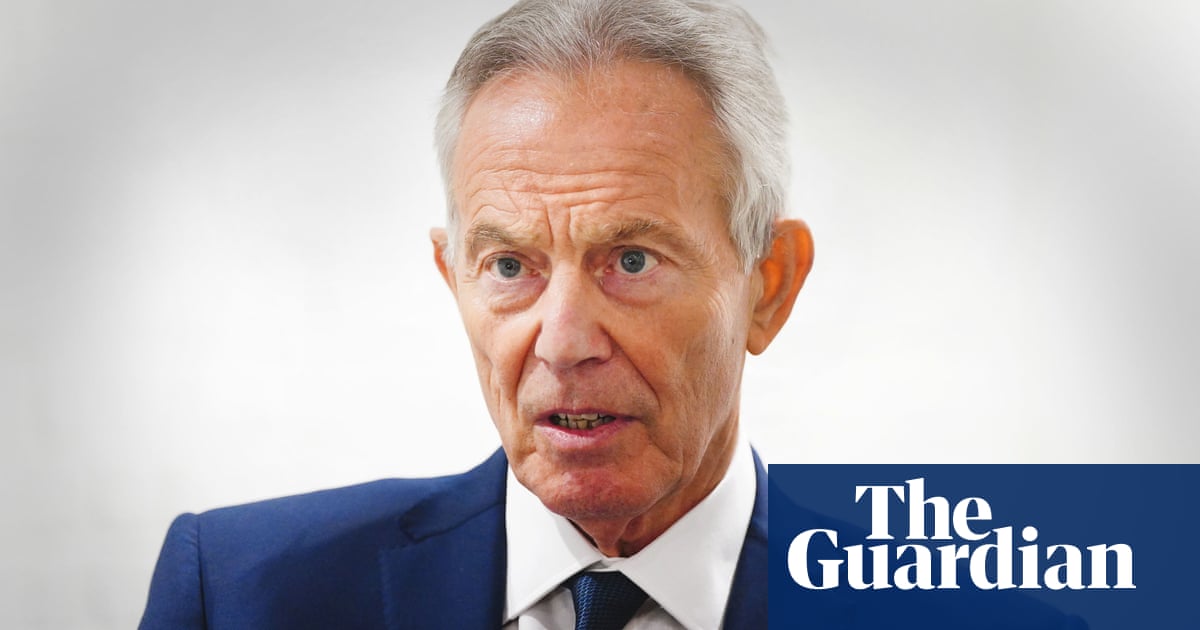
Artificial intelligence could represent the most substantial policy challenge ever faced by the UK and urgent action is needed to avoid falling behind rival powers such as the US, according to a report co-authored by Tony Blair and William Hague.
The former prime minister and the former Conservative party leader, who co-wrote the foreword to the report, said society was about to be “radically reshaped” by the technology, resulting in a “fundamental change in how we plan for the future”. The report warns that the state is poorly prepared for the changes that AI could unleash.
“AI’s unpredictable development, the rate of change and its ever increasing power means its arrival could present the most substantial policy challenge ever faced, for which the state’s existing approaches and channels are poorly configured,” says the report, titled A New National Purpose: AI promises a world-leading future of Britain.
AI has shot up the political agenda in the UK and other countries after breakthroughs in generative AI, which can produce convincing text, images and even voice on command. Rapid developments in AI technology, pushed by factors such as greater computing power, breakthroughs in neural network design and the availability of datasets to build powerful tools like the ChatGPT chatbot, has prompted calls from senior figures in tech for a pause in building powerful systems.
Concerns about AI range from the potential for generative AI to produce disinformation to AI technology developing beyond human control.
Policy recommendations from the report by the Tony Blair Institute include requiring generative AI companies to label the media they produce as “deepfakes” and for unlabelled deepfakes to be removed from the internet. The report also calls for publicly owned datasets to help build responsible AI systems, as well as the creation of a national laboratory focused on researching and testing safe AI, with the aim of it becoming an international AI regulator.
The report also recommends that any entity wishing to access government-controlled computing power for use in building AI systems must show “responsible use” of it.
It says the UK is “overly dependent” on the Google-owned DeepMind, a world-leading AI company, and needs to develop more businesses like it. If the country does not adapt quickly, there is a risk of never catching up with other countries such as the US, home of the ChatGPT developer OpenAI, the report states.
Keir Starmer will set out a stark warning about the risks that the technology poses when he speaks to the London Tech Week conference on Tuesday. The Labour leader will compare the possible effects on the British labour market to the deindustrialisation of the 1970s and 1980s, saying: “The question facing our country is who will benefit from this disruption? Will it leave some behind, as happened with deindustrialisation across vast swathes of our country? Or can it help build a society where everyone is included, and inequalities are narrowed, not widened?”
Lucy Powell, the shadow digital secretary, has called for a licensing model for those working on large datasets that can be used to train tools such as ChatGPT, while Labour is also considering whether a separate AI regulator may be needed.
Starmer’s tone is likely to differ noticeably from that of Rishi Sunak, who told the same conference on Monday that he was excited about the benefits the technology could bring.
“We’re harnessing AI to transform our public services, from saving teachers hundreds of hours of time spent lesson planning to helping NHS patients get quicker diagnoses and more accurate tests,” the prime minister said. “AI can help us achieve the holy grail of public service reform: better, more efficient services.”












